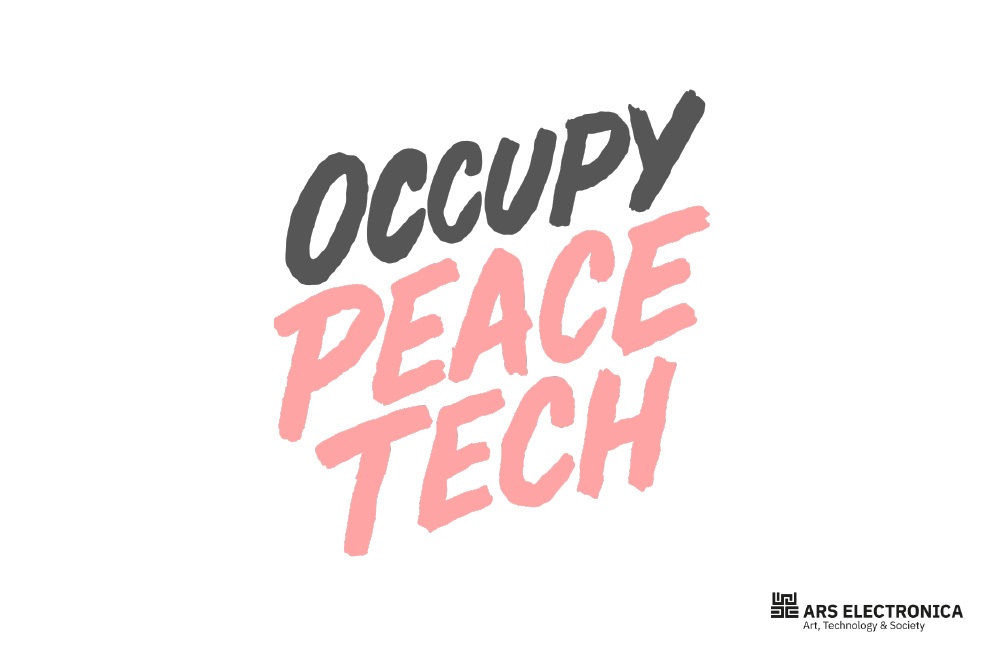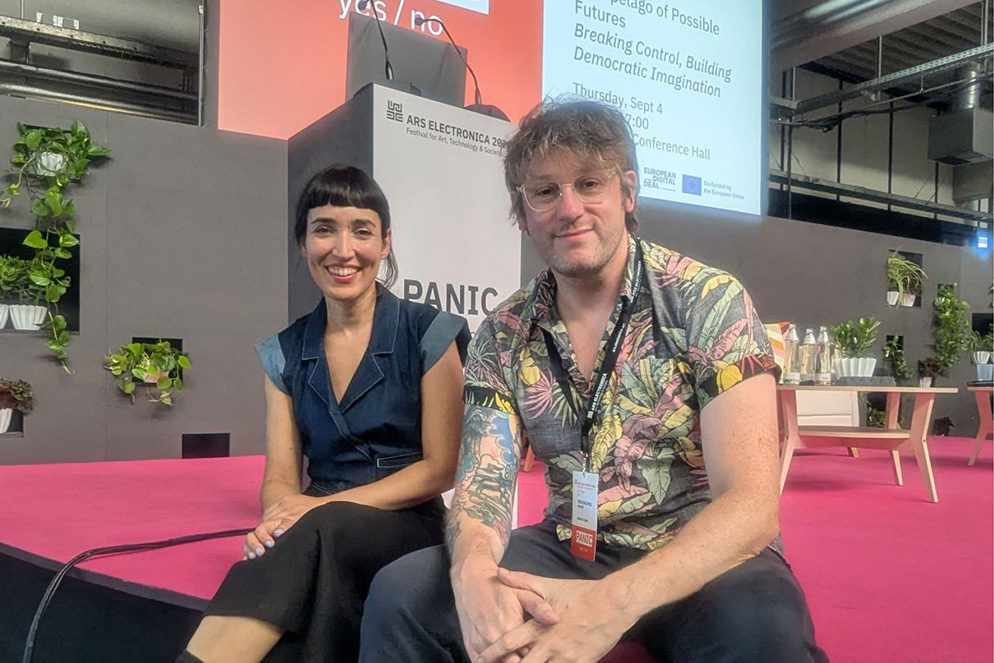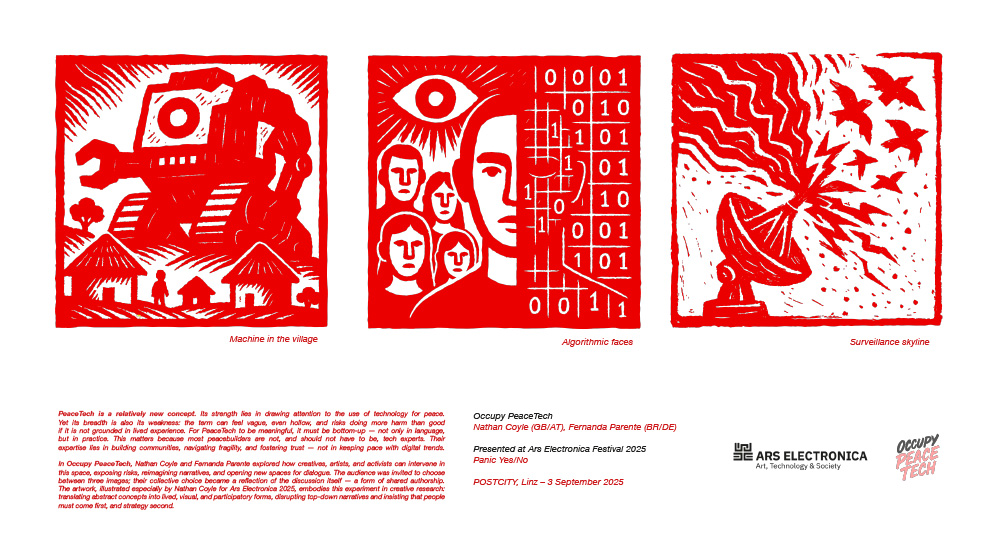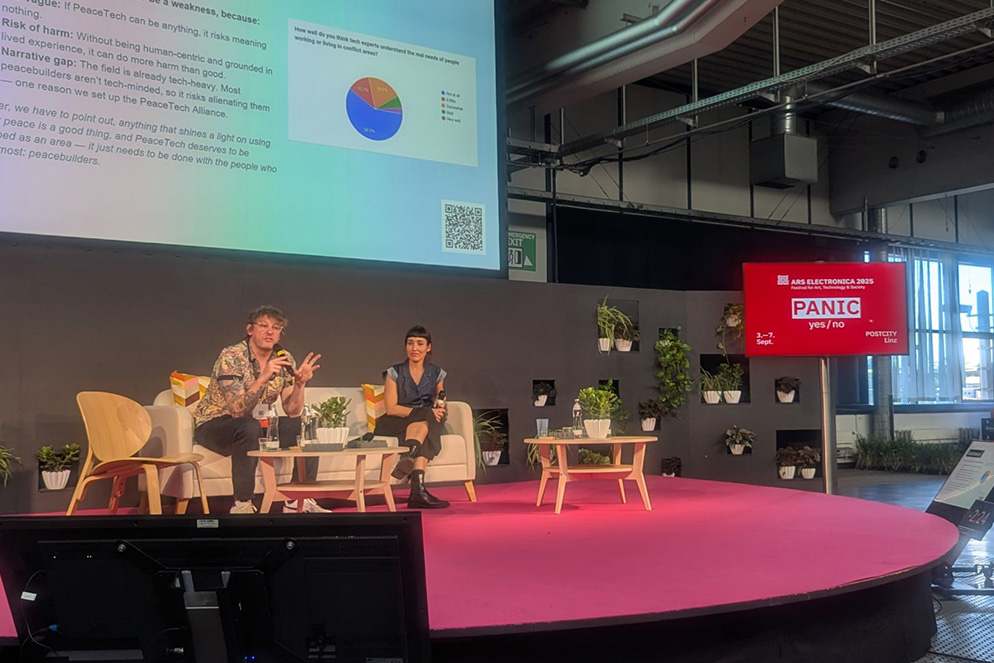


BY NATHAN COYLE / ON 13 November, 2025
At the 2025 edition of Ars Electronica Festival in Linz, under the theme Panic Yes/No, Nathan Coyle, Co-Founder of the PeaceTech Alliance, joined Fernanda Parente to explore how creative research and artistic practice can help reimagine the relationship between peace and technology.

The session, titled Occupy PeaceTech, invited audiences to consider what happens when art, imagination, and critical culture take up space in the emerging field of PeaceTech. Rather than asking how technology can serve peace, the discussion examined how creative and cultural approaches can question power, reveal hidden assumptions, and bring people back to the centre of digital transformation. Participants reflected on how art can act as a bridge between technology and peacebuilding, enabling more inclusive, empathetic, and human-centric design processes.
Coyle highlighted that most peacebuilders are not technologists, nor should they need to be. Their expertise lies in building communities, navigating fragility, and fostering trust, not following the latest digital trends. Parente argued that creative practice offers a powerful means of connecting these worlds, turning imagination into a method for dialogue and understanding. During the session, the audience was invited to interact with a series of Coyle’s illustrated prompts visualising different futures for PeaceTech. The image that resonated most was Surveillance Skyline, reflecting concerns that technologies designed for safety can easily become instruments of control if governance is not shared.

The conversation revealed a central tension in the PeaceTech field: Panic YES represents domination, exclusion, and loss of trust, while Panic NO symbolises creativity, co-creation, and community ownership. Both speakers emphasised that the future of PeaceTech cannot be designed by engineers alone. It must also be imagined by artists, researchers, and local communities who bring ethics, empathy, and cultural understanding into the process.

The PeaceTech Alliance and its Austrian partners continue to work to keep peace and technology connected to people, promoting an approach that places creativity, ethics, and shared understanding at the centre of digital innovation. The Alliance extends its thanks to Daniela Silvestrin and the Ars Electronica team for curating a space where art, peace, and technology could meet on equal terms, reminding us that occupying PeaceTech begins by looking at it from a different angle.